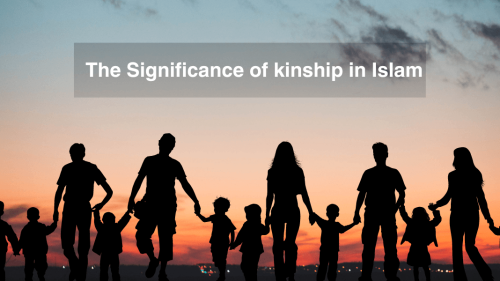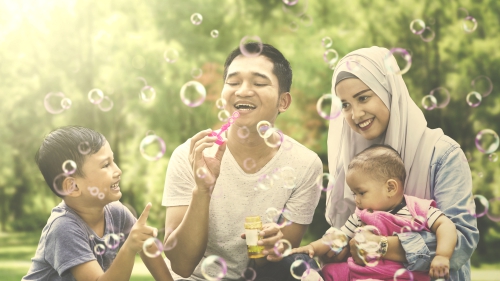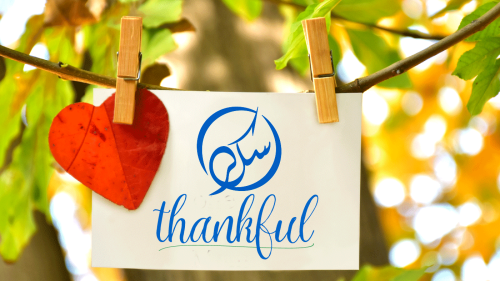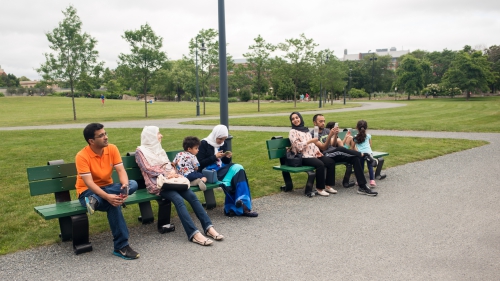Dealing with Death

When Danielle's mom called that April afternoon, I knew I had to go. I had promised myself that, as her physician and her friend, I would go to her home when the end appeared inevitable.
The shadows were lengthening, but the sun was still bright when I arrived. A few people were out lounging or tending to their gardens. Kids were playing, their shouts and laughter punctuating the calm.
Her family was waiting for me and took me upstairs to Danielle's bedroom. She lay in her bed breathing with obvious difficulty and, because of her failing respiration, was unaware of her surroundings. Her mother was by her side. Danielle was covered by a favorite purple and white afghan and surrounded by her favorite trinkets, books, pictures of family -- even her three Chihuahuas.
Danielle was just 22.
Although I have seen many of my patients die, the experience is still searing. Early in my career I had tried to erect a firewall between me and my patients. Emotional burnout is not uncommon among caregivers dealing with serious and fatal illnesses. I remember that, after the death of one patient, I was depressed for days. But I came to realize how futile it was trying to distance myself from the pain.
I now believe it is, in fact, necessary to get deeply involved, to get entangled in the roller coaster of emotions my patients and their families are going through. It is part of trying to be a healer, not just a technocrat physician. I have to be there to utter the words of encouragement, to provide the shoulder to cry on, to remind people that they are not alone in their sorrow.
Months earlier, Danielle and I had talked about the inevitable end. After the last complication of her illness, when we used a catheter to remove fluid from the lining of her lung, she decided she did not want a needle stuck in her ever again.
Her cystic fibrosis was complicated by severe rheumatoid arthritis that precluded the option of a lung transplant.
We agreed to deal with her illness at home with pain medications, oxygen and other comfort measures. Danielle wanted to be active in her job as long as she could and wished to die at home. She worked until a day before her death.
When I had first met her, she was very quiet. Gradually, she came to trust me and was comfortable enough to playfully insult me from time to time, something she took great pleasure in. I still treasure the small framed note she gave me once that said, "When I count my blessings, I count you twice."
Danielle had endured her long and difficult illness with uncommon class and had come to terms with it.
After a few minutes in her bedroom, I walked downstairs, where the rest of the family was gathered in the kitchen. I gave them the phone number where the funeral home could reach me so I could take care of the death certificate. I said my goodbyes and walked out.
I stood leaning against my car for a few minutes. I gradually became aware of the street. The kids appeared to be moving in slow motion, the voices seemed distant. Everything looked slightly out of focus. No one out in the street would have guessed Danielle was dying inside.
Physician, family member
When someone is dying, I know I should be the strongest in the room. But my eyes mist up, and I have to look away to regain control.
These experiences are rewarding because I feel I have provided a tiny bit of solace and comfort. I feel humbled when families allow me the deepest access into their lives and consider me a friend. This was the case with William and his family. Only a few months before he died at age 19, I had gone to William's house when he invited me to his high school graduation party.
I was impressed at William's energy as he first played ice hockey and later tennis in high school. He was excited that he had just been accepted into a computer program at a downtown college.
When he learned I had arrived at his party he ran out to greet me and gave me a hug. I noticed him looking around and asked what he was looking for. He said, "Your car." I had my Toyota, and he was looking for a Ferrari or Bentley. We had a good laugh. This was before we discovered he had colon cancer.
When we realized that William had come down with cancer on top of his cystic fibrosis, it seemed like an uncommonly cruel fate. Predictably, he went through anger and depression. Initially he was hopeful that he might be able to beat the cancer, but he later knew the end was inevitable.
Although I gave him the opportunity, William never talked to me about death directly. His parents told me, however, that he wanted me to assure him that when the end came he would not feel as if he was suffocating.
Although William did not care whether his death came at home or at the hospital, his parents did not want him to die at home. They wanted home associated with positive memories. They felt his room would be haunted with painful memories if he died there.
Nurses and physicians were attentive to William's and his family's needs. William did not want to be left alone even for a moment and was surrounded by his family to the end. We were able to give him enough sedation and a breathing assist device that allowed him to die in peace, without the feeling of suffocating that he so feared. William's dad wanted to walk with his body to the morgue, and we walked with him.
At William's wake, his dad introduced me as a family member.
Personal loss
I felt that roller coaster of emotions again when it came to the death of my youngest sister, Parveen, 49.
For her, the decision to die at home was not a difficult one. When she realized nothing more could be done for her colon cancer, she wanted to go home to be close to her family. She had fought the cancer with extraordinary fortitude but was now exhausted.
Even through her pain and fatigue she worried about her children more than herself; nothing else seemed to matter.
At home her condition worsened quickly and I could see her slipping away. During the last hours I could not tell if she was aware of her surroundings. As our family kept vigil in her room, I kept thinking of her simple life; the adjectives "selfless" and "noble" kept coming to mind.
It felt so unfair that she could not buy a few more years to celebrate the achievements of the children she loved so much. I felt despondent, helpless and guilty that I was in good health and had already lived years longer than she would.
As time seemed to pass ever so slowly in that room, I recalled a verse from the Quran about the moment of death: "[God] is nearer to him/her than you, but you cannot see." And I felt God was with her.
She, like Danielle and William, passed in peace surrounded by her family.
Javeed Akhter is director of the cystic fibrosis program at Advocate Hope Children's Hospital in Chicago. He is also the Executive Director of the Chicago based International Strategy and Policy Institute and he is the author of the book "The seven phases of Prophet Muhammad's Life,"
Click Here to read book review of The seven phases of Prophet Muhammad's Life
Related Suggestions
Being aware that death is inevitable, the believer prepares himself for death all throughout his life and ultimately passes on.
- Angels of death greet him and give him the glad tidings of paradise.
- Angels take the soul of a believer gently.
- The believer feels the need to give the glad tidings to other believers in the world that
God s promise is assured and that there is neither fear nor sorrow for believers.
...the angels reclaim the souls of the just, saying: (to believers) Peace be upon you! Enter the Garden as a reward for your labours. (Surat an-Nahl: 32)
Externally, people witness only the medical death: a body gradually losing its corporeal functions. Those watching from the outside a person on the brink of death see neither his face and back being beaten, nor his soul reaching the gullet. Only the soul of the person concerned experiences these feelings and sees these images. However, the actual death is tasted in all of its aspects by the person dying in a dimension unfamiliar to those witnessing death from the outside. In other words, what is experienced during the course of death is a change in dimension.
These verses disclose a very important and unchanging fact about death: at the moment of death, what the dying person goes through and what those nearby observe are dissimilar experiences. For instance, a person who spent his entire life as an unyielding disbeliever may be perceived to experience a peaceful death from outside. However, the soul, in a totally different dimension now, tastes death in a very painful way. Alternatively, the soul of a believer, despite seemingly suffering great pain, leaves his body in a virtuous state .
In brief, the medical death of the body and the death of the soul, which is referred to in the Qur'an, are totally different events.
[From DEATH, RESURRECTION, HELL by www.HarunYahya.com]
I just read your article on Dealing with Death...its very touching.
Dr.Javed, our family is presently undergoing a lot of emotional turmoil due the sudden illness of my cousin sister who is young and has two children.
I would like to seek your advise on her health as we are intending her to take abroad , depending on her health circumstances.
I do not have your personal email address to forward you the report or contact you.
If you would be kind enough to write back on my email address and assist us in taking a decision to take her for further treatment abroad.
I do not wish to name the illness here or explain in this message board about her further, please be kind enough to contact me.
Thank you
ALLAH HAFIZ
In this day of advance science we are dare to deny existance of God, religion, prophets, every thing but we all agree with death the ultimate truth, and this alone justifies God the almighty is the giver of life as he takes away as he wishes.
As the Quaran says "every thing comes from him and returs to him" nothing can stop it, regardless of you believe or not in him.
Oh Allah guide us to the truth, keep us in truth, forgive our sins both known and hidden, clean our hearts and finally protect us from the hell fire. Ameen.
world. It's a matter of time we all have to go one day in one way or
other.

















